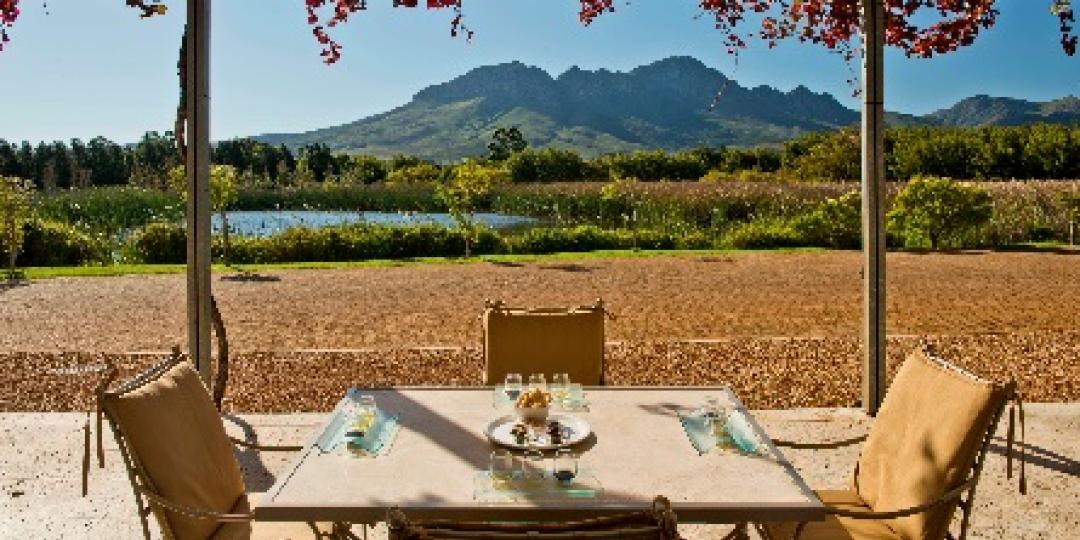Product owners and service providers dealing with the European market are identifying new, sometimes subtle, behaviours in this market. They range from booking methods and patterns to activity choices and types of holidays. All round, the desire for authenticity and an environmental consciousness continues to grow.
Christiaan Steyn, Marketing Manager of Drifters Adventours, has noticed greater demand for tours and products that break away from the mainstream. In addition, while clients are inclined towards accommodation tours as opposed to Drifters’ camping options, they still want to spend a few nights under canvas, to give their trip an additional dimension.
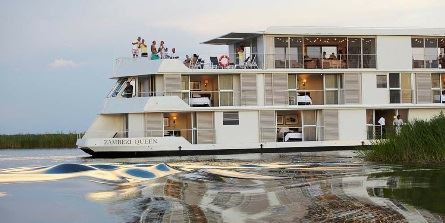
Wayne Suttie, General Manager: Sales & Marketing for the Zambezi Queen fleet of houseboats operating on the Chobe River on the Namibia/Botswana border, has observed that booking periods have shifted further out, and far more business is being booked as far as a year in advance.
According to Martin Botha, Chief Operating Officer of Tourvest DMC, there is a high rate of repeat business from Germany, as well as increasing interest in scheduled tours, self-drive and experiential travel. “The Swiss market are very particular and specific in their product selection and are well-informed on the destination. Golf holidays are often sought after,” he adds.
Suzanne Benadie, Director of Sales for greater Europe at Tourvest DMC, points out that the Dutch are typically bold and dynamic and inclined to seek out product that is off the beaten track. She adds that family travel is growing too.
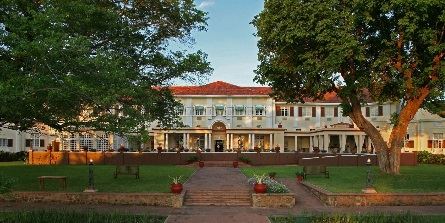
More online bookings and the bypassing of tour operators, has been noted by Lindi Mthethwa, Regional Sales & Marketing Manager for The Victoria Falls Hotel. “However, we are very careful to protect our traditional operators and maintain rate parity in the market,” she says. Mthethwa sees positives in the fact that European economies are experiencing growth and Zimbabwe is also more affordable, with the euro having appreciated 5% against the dollar since December.
“We have found an increased number of requests for semi-active holidays, rustic accommodation types and authentic experiences,” comments Cameron Murray, of Escape Cycle Tours. Rather than full 10-14 day cycling itineraries, clients are seeking a few days of scenic cycling combined with other activities that get the blood pumping, mixed with arts and cultural experiences, he says.
“I have also noticed an increased interest in real and authentic experiences to less-visited provinces around South Africa. People don’t just want to stay in another country or place, they want to feel, learn and experience that location and its people,” says Cameron.

A desire for authenticity is noted too by Sue Howells, Sales & Marketing Manager for African Synergy, which represents a collection of African products. She has seen a definite increase in self-driving European clients, who are starting to feel more comfortable with navigating local roads independently. “This gives them more opportunity to be more independent and to possibly have more authentic experiences in their own time,” she says. “With this comes a need for luxury, upmarket self-catering properties such as La Cotte Farm in Franschhoek, well situated and excellent value for both upmarket and mid-range budget clients.”
According to her colleague, Anke Paterson, MD of African Synergy, the European demand for family travel remains. “We are seeing more and more multi-generational requests and La Cotte offers super alternatives for families, such as fully equipped, small, individual cottages sleeping four, or the luxurious La Cotte House, accommodating up to 16, with a chef to do breakfast and other meals.
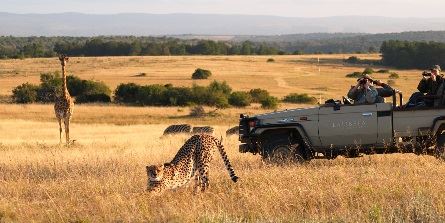
In the Eastern Cape at Lalibela Game Reserve, Marketing Director Vernon Wait confirms that family travel is still a trend, with family groups getting even bigger in size. Increasingly, the reserve hosts groups of two families with children travelling together.
Guests, he says, are also seemingly more active and want to do things in their downtime. In the past, they were generally happy to use the time between morning game drives and afternoon high tea to relax at the pool, read a book or take a nap, but many now request an activity.
“European clients are fanatical about professional customer service and helpful staff, so attention to detail is absolutely paramount for these clients,” remarks Nicky Coenen of the boutique hotel group, The Last Word Intimate Hotels.
They are also keen on hearty breakfasts, and lesser-known destinations with a sense of adventure, she points out.
Coenen notes that European travellers want to make a difference to the people, nature and wildlife of the places that they visit. As a result, The Last Word Intimate Hotels, along with Mantis Collection Hotels and Lodges, are offering two avenues of contribution.
Under the Hotel Rhino campaign, guests can purchase a fluffy rhino toy, and a donation is forwarded to the Wilderness Foundation for The Forever Rhino Protection Initiative, concerned with maintaining populations of free-ranging rhino in state- and privately-managed conservation areas.
Both hotel groups are also stocking Game Reserve Wines, produced by the Rooiberg Winery. Once again, purchase of the wines leads to a Wilderness Foundation donation.
Greater sensitivity to carbon footprints is also observed by Esther Ruempol, Market Manager at Tourvest DMC for the Dutch and Benelux markets. “There has been a significant increase in demand for Fair Trade, green and animal-friendly product in the Dutch market. We’ve seen that a growing number of our European clients are phasing out the sale of products that are not environmentally friendly.
According to the Leisure Tourism Department at Wesgro, European visitors are reducing their nights in Cape Town and extending their time outside the city. “As such, nights in Cape Town are starting to change from the traditional three to two, with an increase in bed nights in the Cape Winelands and Cape Overberg,” said a spokesperson.
Self-drive road trips, says Wesgro, are growing in popularity, such as Route 62, the Garden Route and the Cape West Coast, all of which have huge diversity of experiences and attractions.
Echoing these sentiments is Simona Battani, Sales Director who looks after the Italian market at Tourvest DMC: “The Italian market is growing in confidence. Despite the fact that many Italians don’t speak English, we have thousands of them self-driving around South Africa annually. They embrace South African food, people and culture.
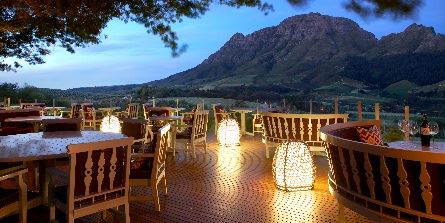
The Western Cape’s food culture is attracting European consumers from all segments, with gourmet food options speaking to the older traveller and street markets attracting the younger trendies. Developments in craft beer, gin and whisky have added scope to the province’s well-established wine tourism, catering for a wider audience.

Sporting events are a key consideration for Europeans – running, cycling and endurance races among them. Wesgro is supporting new events, such as the Walker Bay Extreme and Strongman Run, that have large global support and attract international competitors. The Cape Town Marathon is the first marathon in Africa to achieve IAAF Road Race Gold Status, a further attraction for the sporty.
Wesgro reports that the province’s popularity for working holidays, cycling routes, weddings and honeymoons is growing. Said the spokesperson: “The European market is known to favour the province for luxury weddings and to extend this into honeymoons. They ‘bank’ all their airline miles and combine their trip with an island stay (London-Cape Town-Garden Route-Kruger-Mauritius/Seychelles).”
The tourism authority also expects the Zeitz Museum of Contemporary Art Africa, scheduled to open in September, will be a global game changer as it is already drawing a huge amount of interest from global trade.
Commenting specifically on the German-speaking market, a spokesperson for Seolo Africa, a collection of lodges in South Africa and Zimbabwe, said Southern Africa had grown in popularity in German-speaking countries, based on the variety and authenticity of its product offering, and most importantly, reasonable cost. “Germans love to know they are getting good value for money, and they perceive it as a form of saving,” she said.
Repeat business is strong, hence the success of the Seolo properties, which provide an all-round experience: wildlife, culture and excellent-value accommodation. That the properties also offer family accommodation is also of appeal to this market.
German speakers were after the authentic wildlife experience, and not necessarily the ‘bling-bling’ safari, she commented, and also sought to educate themselves.
